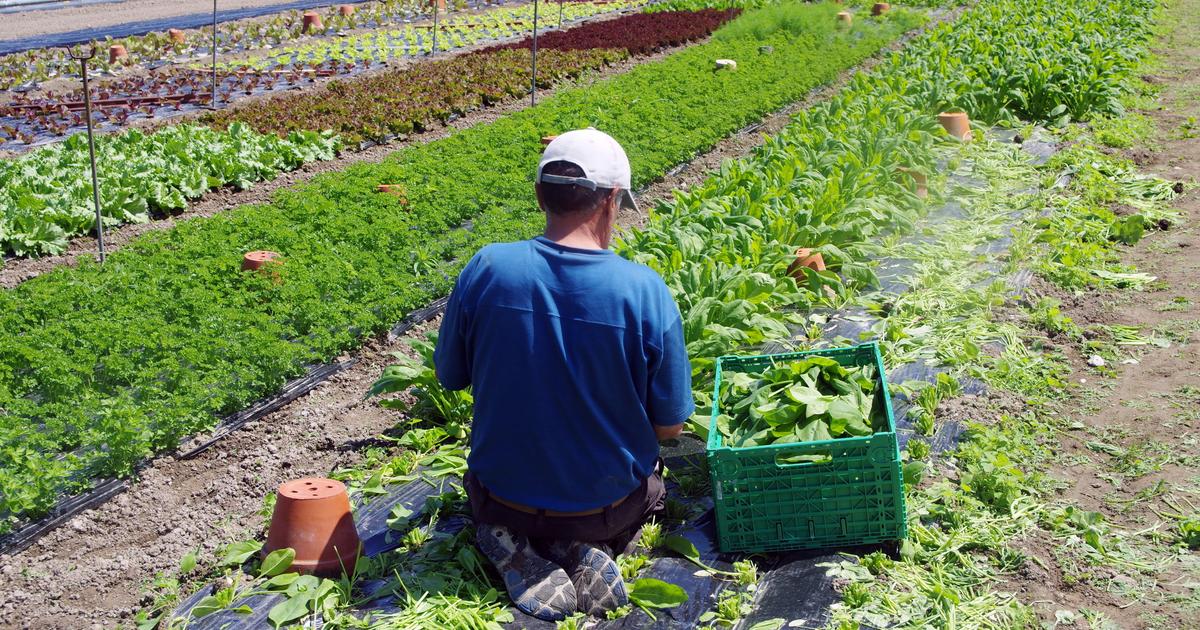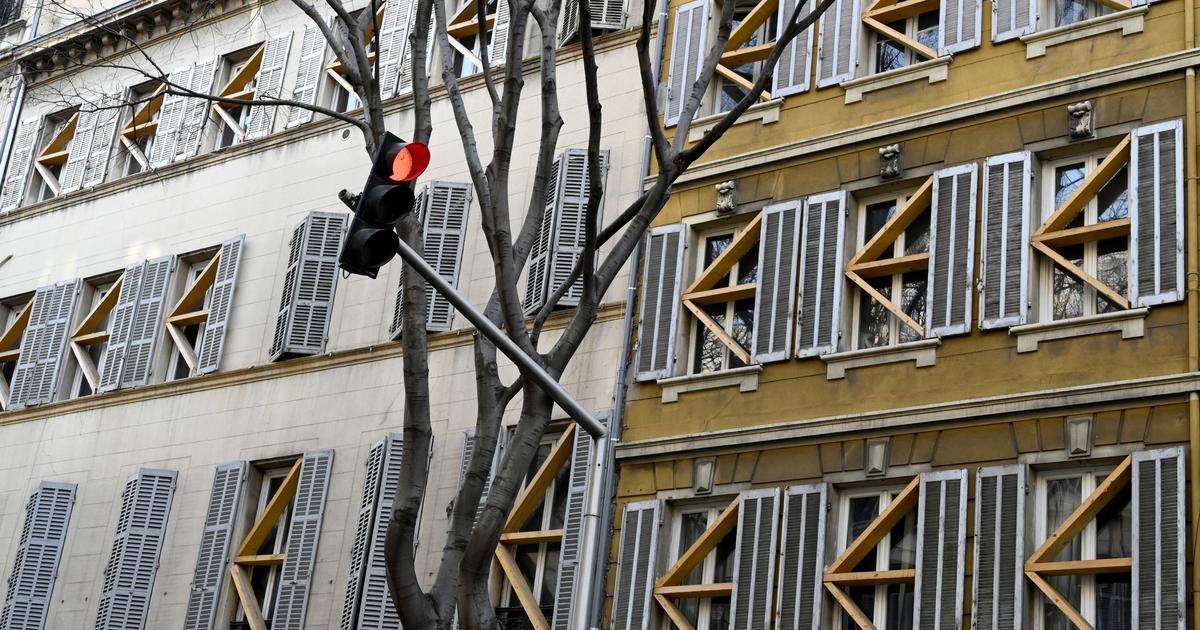The City Council of Níjar (Almería) demolished this Monday, January 30, the Walili shantytown settlement, located on one side of the San José highway, an action that has raised controversy in recent months in the province of Almeria.Carlos Barba ( EFE)
Under the rain and intense cold, dozens of migrants watched on Monday how several machines protected by the Civil Guard and the Local Police of Níjar (Almería, 26,126 inhabitants) destroyed the Walili shanty town, where many had lived for several years.
"Nobody wants to rent us a room, the only option was to live here," said Mamadou, a 25-year-old Senegalese man who has lived in the camp since 2017. His words are the key to understanding what this demolition means, which is the tip of the iceberg. of a situation that affects some 3,000 migrants who live in around fifty settlements in this region of Almeria alone.
They are part of the workforce that sustains the economic miracle of the greenhouses, which in this region have doubled their surface area in 20 years,
"Intensive agriculture has developed only taking into account the hectares of greenhouses, not the workers that are needed to maintain the activity," says Fernando Plaza, a nurse, a professor at the University of Almería and who acts as spokesperson for the Association for Rights Human Rights of Andalusia (APDHA).
“How can you create so much new space and nobody think about the necessary housing for the employees?” asks Nadia Azougagh, an activist from the La Resistencia collective, along the same lines.
As they both explain, many of those who work under plastic and maintain this industry have no one to rent them a flat.
They have no choice but to live badly sharing a mattress in a room, in garages where several people live or building shacks with wood, cardboard and plastic in settlements like Walili,
More information
The evicted from Níjar seek their place
The road to this eviction began in the 1990s, when the first migrants arrived in Almería to work in agriculture.
With the turn of the century their number increased and their precariousness, too.
In 2000, after the xenophobic riots in El Ejido, they went on strike to request improvements in the sector.
The strike ended when the administrations -local, regional and state- reached an agreement to invest 800 million euros in the area, with special attention to the development of temporary housing.
“None of the parties actually wanted to implement that plan.
Whoever had to give the money didn't do it, whoever had to put the land didn't put it up, whoever was going to start the work didn't start it,” Plaza points out.
The document remained a dead letter while intensive agriculture grew by leaps and bounds.
Data from the Junta de Andalucía indicate that in the municipality of Níjar the hectares under plastic have almost doubled in the last two decades: from 3,373 in 2001 to 6,087 in 2021, as reflected in the report Mapping greenhouses in Almería, Granada and Malaga.
In return, in this same period there has been no public housing initiative and there have hardly been any private constructions.
It is verified in a quick glance in Idealista: in the area of San Isidro and Campohermoso —where most of the settlements are— there is barely one home for rent and 80 for sale, most with a price of more than 100,000 euros.
A migrant walks past a burnt-out shack before the demolition of the settlement, this Monday, January 30, in Níjar. Associated Press/LaPresse (APN)
“In agricultural areas like this, a public housing plan must be promoted.
It is the only solution, but they have not been built here for decades," says Andrés Góngora, provincial secretary of the Coordinator of Organizations of Farmers and Ranchers (COAG), who stresses that migrant labor "is essential" for the sector.
"Without them, it could not be what it is," insists the man from Almería.
The only public initiative is the construction of 62 homes in the Los Nietos neighborhood, almost eight kilometers from Walili, promoted by the Junta de Andalucía with the support of the central government, which finances the project with 1.6 million euros.
"The fight against shanty towns is a municipal competence," Alicia Martínez, general secretary of Housing for the Andalusian administration, recalled yesterday.
Some of its inhabitants will move there -in a period of at least two months- on a cheap rent basis.
What will happen to the other 3,000 people residing in settlements like the one demolished this Monday?
Nobody knows.
"Nobody cares.
The city council only wanted to remove that because it stains the tourist image and the ecological products of the area, but the subhuman conditions are the same in all the camps ”, they conclude underlining from the Derecho a Techo platform.
"It gives an image that is not the one that corresponds to a competitive place in Europe," said the mayoress of Níjar, Esperanza Pérez (PSOE), a year ago when presenting the project for the 62 floors, when she said that the plan is to continue dismantling settlements “if there is institutional collaboration”.
Only 10% of Walili residents are rehoused
Of the around 500 Walili residents, some 450 – 90% – moved to other surrounding camps in the days before the eviction.
Only 50 arrived on Monday at the emergency center promoted by the Níjar City Council in the Los Grillos neighborhood, about eight kilometers north of the settlement.
This Tuesday the social entities that manage it did not give figures on how many had finally slept there.
"We have not done the count," they said around two in the afternoon.
“They are not bad here, on the contrary.
The fundamental problem is that the space is far from their work areas and they do not have a means of transportation to go there”, explained Carmen Domínguez, president of Médicos del Mundo in Andalusia.
"And employment is the most important thing for them," she stressed.
Subscribe to continue reading
Read without limits
Keep reading
I'm already a subscriber










/cloudfront-eu-central-1.images.arcpublishing.com/prisa/2C5HI6YHNFHDLJSBNWHOIAS2AE.jpeg)




